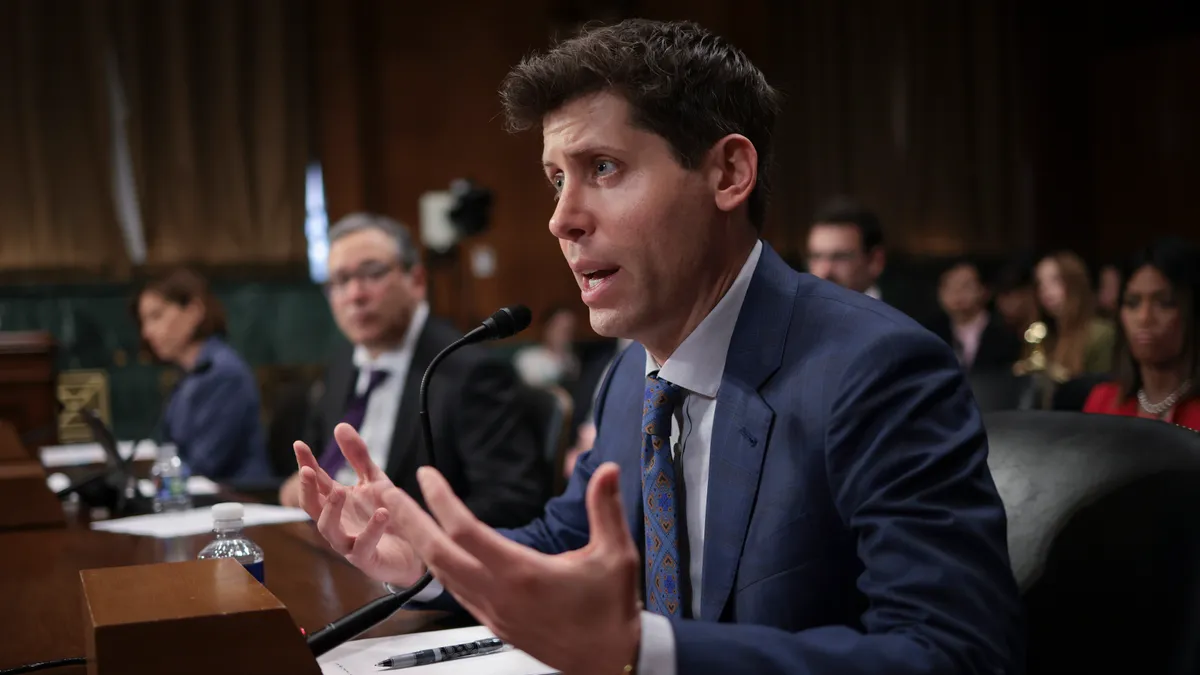Dive Brief:
- Elon Musk is suing OpenAI, its CEO Sam Altman and President Greg Brockman, according to a filing with the Superior Court of California in San Francisco Thursday, claiming breach of contract related to the company's ties to Microsoft.
- Musk, CEO at SpaceX and Tesla, contributed tens of millions of dollars and advice to the startup under the belief it would constitute a non-profit entity, the lawsuit alleges. "In reality, however, OpenAI, Inc. has been transformed into a closed-source de facto subsidiary of the largest technology company in the world: Microsoft," the suit said.
- The lawsuit comes nearly four months after a leadership shakeup briefly ousted CEO Sam Altman, who was quickly reinstated. The company's board of directors was revamped in the aftermath, and Microsoft gained a non-voting seat.
Dive Insight:
Musk's lawsuit against the salient AI provider is the most recent legal turmoil befalling the startup.
Earlier this week, The Wall Street Journal reported on an ongoing probe of the startup by the Securities and Exchange Commission, looking into whether the company had misled investors. The SEC declined to comment.
The Intercept, Raw Story and AlterNet each sued OpenAI Wednesday, claiming its stories were used as training data in a violation of copyright laws. The New York Times filed a suit against OpenAI in December, citing improper use of the media company's published works.
Though much of Musk's lawsuit hinges on the concept of artificial general intelligence, and whether or not GPT-4 constitutes AGI, enterprise software dynamics are also part of the contract breach claim.
The suit describes GPT-4 as a "de facto Microsoft proprietary algorithm, which it has integrated into its Office software suite." Microsoft-owned GitHub Copilot and Microsoft 365 Copilot, among other solutions, leverage OpenAI's GPT-4 technology to offer insights and generative AI support to employees using the tools.
Leadership or legal trouble at software providers highlights the importance of triaging vendors, analysts told CIO Dive in November. Major disruptions could impact enterprise technology strategies if they impact a provider's service quality.
OpenAI and Microsoft did not immediately respond to requests for comment.













